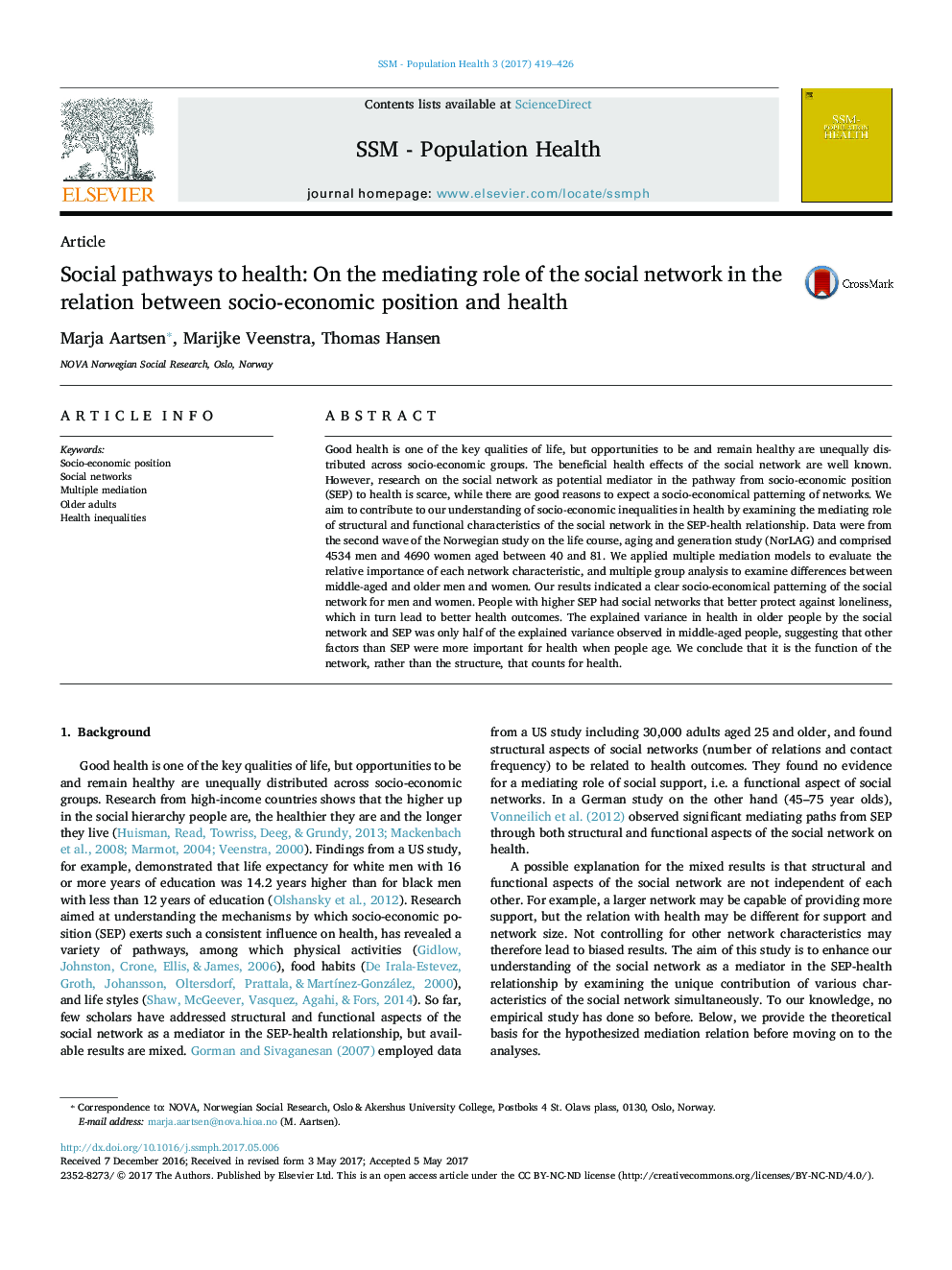| Article ID | Journal | Published Year | Pages | File Type |
|---|---|---|---|---|
| 5123273 | SSM - Population Health | 2017 | 8 Pages |
â¢The social network of middle aged and older people is clearly socially patterned.â¢The higher the status of people, the larger the network.â¢The higher the status of people the larger the support potential of the network.â¢The quality of the network is more important for health than its quantity.
Good health is one of the key qualities of life, but opportunities to be and remain healthy are unequally distributed across socio-economic groups. The beneficial health effects of the social network are well known. However, research on the social network as potential mediator in the pathway from socio-economic position (SEP) to health is scarce, while there are good reasons to expect a socio-economical patterning of networks. We aim to contribute to our understanding of socio-economic inequalities in health by examining the mediating role of structural and functional characteristics of the social network in the SEP-health relationship. Data were from the second wave of the Norwegian study on the life course, aging and generation study (NorLAG) and comprised 4534 men and 4690 women aged between 40 and 81. We applied multiple mediation models to evaluate the relative importance of each network characteristic, and multiple group analysis to examine differences between middle-aged and older men and women. Our results indicated a clear socio-economical patterning of the social network for men and women. People with higher SEP had social networks that better protect against loneliness, which in turn lead to better health outcomes. The explained variance in health in older people by the social network and SEP was only half of the explained variance observed in middle-aged people, suggesting that other factors than SEP were more important for health when people age. We conclude that it is the function of the network, rather than the structure, that counts for health.
